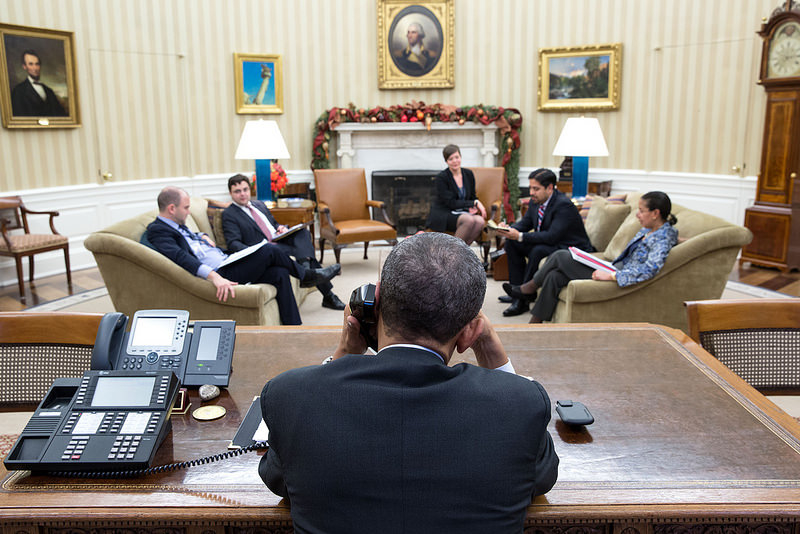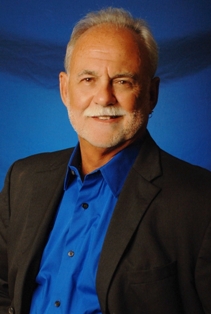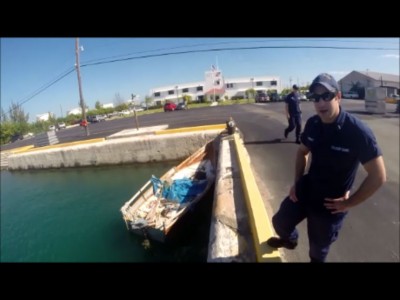
President Barack Obama talks with President Raúl Castro of Cuba from the Oval Office, Dec. 16, 2014. (Official White House Photo by Pete Souza)
Man is not free to watch impassively the enslavement and dishonor of men, nor their struggles for liberty and honor.
- Jose Marti, Cuban Independence Revolutionary and Key West Poet
by JD Adler
The Pope, Obama and Castro are on the phone…
In a surprise announcement Wednesday, December 17, 2014, President Barack Obama informed the world that at the urging of Pope Francis who “pursues the world as it should be, not as it is…” the US and Cuba have been negotiating directly for the first time in 5 decades. As a result, Cuba released Alan Gross (imprisoned 5 years for giving out smart phones without a permit as evidence he was a spy), and an unnamed US intelligence operative. In exchange, the US released 3 Cuban operatives held in America; Ramón Labanino, Antonio Guerrero and Gerardo Hernandez. The Presidents, Barack Obama and Raul Castro, spoke personally Tuesday to finalize this deal. However, the exchange was only the tip of this Caribbean iceberg.
As a result of the negotiations, Obama announced three categories of radical changes to US policy that will effectively end the 50+ year embargo. Though Congress must take action to alter legislation, so the law will remain in effect. In the coming months the administration, by executive order, will:
- Re-establish official diplomatic ties, including an embassy in Havana.
- Review Cuba’s designation as “State Sponsor of Terrorism” to determine if it still applies.
- Increase Travel, Commerce and Information Access:
- US credit and debit cards will be usable in Cuba
- Increase cap on $$ that can be sent to Cuban people (from $2000/yr to $10,000/yr)
- Increase cap on remittances (international wire transfer) to individual or business
- Increase import limit for “licensed U.S. travelers” ($400)
- Authorize transactions between US and Cuban banks
- Allow opening of bank accounts in Cuba by US citizens/companies
- Reduce restrictions on exports to Cuba from US
- Enable telecom companies to set up shop in Cuba
The President declared the policy of isolation a failure, “[The US] can’t do the same thing for over five decades and expect different results.” He stated, repeatedly, that he believed “human to human engagement” was the best method for advancing US values. Supporting his theory, he cited China and Vietnam, communist nations we have been trading with for decades and as result have influenced. Obama also pointed to the eased restrictions with Cuba over the last few years which have allowed families to reunite and some money to flow, as a positive influence due to this practice of engagement.
On the Cuban side, there will be a release of domestic political prisoners, opening of internet access, and increased cooperation with international, humanitarian agencies like the UN and Red Cross. The President was quick to add that he does not expect an overnight transformation in Cuban society to liberty. He does believe that the best way to bring change, over time, is by influencing them through engagement.
President Raul Castro made a brief statement on Cuban national television thanking the President, the Pope and Canada, acknowledging the prisoner exchange, and calling for the complete end of the economic blockade. He did not mention the other aspects of the agreement.
Sen. Marco Rubio, (R) of Florida, and 1st generation Cuban-American, gave a scathing response to the President’s announcement. He called the President “willfully ignorant” and “the worst negotiator we’ve had in the White House in my life-time”, suggesting that he gave Castro everything without any guarantee of human rights improvements. Rubio stated that he thought these changes would “do nothing to bring about [freedom] and in fact, might set it back.” Though he offered no explanation as to why he did not believe Cuba would have similar results to China and Vietnam, or why he expected the status quo to produce positive results in the future.
Key Cuba
For the rest of the nation, Cuba is an abstract conversation about politics and/or economic opportunity. For the Keys there is a more immediate perspective. A tourist destination only 90 miles away, with its own international airport, that has been taboo for 5 decades will generate a great deal of interest if suddenly opened just before winter. Will there be a boom in commerce as people come to Key West on their way to Cuba? Will traditional Keys tourists start adding Cuba side trips to their itinerary? Or will direct trips to Cuba circumvent the local economy in favor of a new destination? There are already airlines and tourism companies testing the waters.
I asked Cuban-born, City Commissioner Tony Yaniz about the changing situation. At first, he was just excited to hear about the release of Alan Gross, having spent years campaigning for his release; writing letters to VP Biden, going to DC to petition Congress and even writing the Castro regime. To see the efforts of so many like himself finally come to fruition was extremely gratifying. When he heard the rest of the President’s statement, that brought more personal emotions. “I had tears in my eyes when I heard the news. There is a Santa Claus! My grandmother always said she wanted to go home before she died, as did my father and mother, before they died. Now that’s finally going to be possible [for people].” The heartfelt passion in his voice was contagious, I felt myself getting caught up in the moment as we spoke.
I asked him what he thought about Florida Sen. Rubio’s scathing and insulting response to the news, he dismissed it as political posturing. “This is a draconian and hypocritical policy… After this [embargo] didn’t work for 54 years, let’s try this [openness] for 5 years and see what happens.”
And what does he expect to happen, particularly for Key West? Words rolled over each other, barely able to contain himself, as he emphatically described a future scenario booming for the local economy. American tourists will come to Key West and add short trips to visit Cuba. Why wouldn’t they go directly to Cuba? “The infrastructure in Cuba is still terrible. American’s want their running water and creature comforts. They’re going to come to Key West and then do a short add-on trip.” Planes, boats, tours, Yaniz described opportunities expanding in rapid succession. I could almost see his imaginings.
Nor does he see this as one-way traffic towards Cuba. In the past, Cuba and Key West had a deeply intertwined relationship. Often referred to as Cuba’s “8th province”, Key West was a hub of cultural and economic activity. This allowed the Keys to prosper long before Miami was pulled from the swamp. As the Cubans begin to prosper in this new economy, Yaniz fully expects to see Cuban tourists coming to the Keys to explore historical and cultural connections, as well as business opportunities. While his optimism seems well-founded, there remain a few obstacles to overcome.
Uncharted Waters
Opening the borders is not all there is to doing business there, however. There are a number of issues to overcome, and probably a few more no one has thought of yet. The law preventing Americans from spending money in Cuba, the Helms-Burton act, can only be repealed by Congress. In recent years loopholes have been legally created to allow for educational trips and the like, but even those have restrictive rules. Traveling to Cuba, without proper permission, is considered an Unauthorized Entry; a minor civil violation. Spending money in Cuba, while unauthorized, becomes a much more serious criminal offense. While the President can alter the details or application of law by Executive Order, unless Congress decides to act, the law remains. Furthermore, executive orders can be reversed by the next President, which raises stability concerns for long-term business ventures.
There are also commercial and legal obstacles that have developed over the years, outside of the government. For example, I was discussing the implications of these changes with Patrick Cusimano, one of the owners of Greene Street Cigar Company, and discovered a whole new world of convoluted legal maneuverings. The Cuban government, which nationalized all commerce after the communist revolution, sold a 50% interest in cigars to Altadis, an international tobacco company. Altadis has been engaged in a lawsuit for years with an American company, General Cigar Company, over the Cohiba copyright (the main Cuban cigar brand). If you buy actual Cuban Cohibas anywhere in the world, you are buying from Altadis. However, in the US, General Cigar Company sells Dominican Cigars branded Cohibas and they own the US Copyright. In March, 2013 another round of appeals went General’s way, the Judge citing Altadis’ inability to sell Cuban products in the US as undermining their legal argument. Of course both of these companies are now subsidiaries of other companies, adding to the labyrinthine nature of the discussion.
If this new diplomatic situation is going to alter that civil suit, there will still have to be at least one more round of legal battles. Until then, Altadis will not be able to sell the Cuban Cohibas in the US and it is unlikely they will allow General to serve as their proxy, so no Cuban cigar rush. After decades of embargo, how many other areas of commercial trade will discover similar obstructions?
Immigration Flotilla
In the Key West US Coast Guard Sector, they dedicate more time and resources to retrieving and repatriating Cubans than on any other single activity. People risking their lives on makeshift rafts to flee Cuba in the hope of reaching America, knowing the odds are on them either dying or getting returned.
Number of Cuban Migrants interdicted at sea in last 5 years:
Cases per Fiscal Year
FY10: 339
FY11: 884
FY12: 1,217
FY13: 1,314
FY14: 2,071
Source: USCG
Each Case is a “boat”, often with 10-15 people on board. That’s roughly 20,000 people last year, not counting those who made it. If the influx of US dollars and activity allows for an improved economy, will that tide of humans ebb dramatically in the near future? Are they truly fleeing political persecution, or abject poverty? If the latter, and the President’s new policy succeeds at improving life in Cuba, what will these case numbers look like one or two years from now?
In 2012 Cuba received $2.6 billion from their American families in remittances. This was by far the greatest source of income for the island nation, while limited to $500 per quarter. Now that limit has quadrupled, US banks are going to do business with cash poor Cuban banks, and the quantity of tourists are about to increase; all adding capital to a managed economy where all else will remain equal. Hypothetically, Cuba should be about to see an unprecedented economic boom.
Perhaps the truest metric, of President Obama’s theory that engagement will do more than embargo to alter life in Cuba, will be these floating migration numbers.
Summary:
After 5 decades, President Obama has made a radical shift in US foreign policy regarding the last stronghold of Communism in the world. He, and those who support this move, believe the influence of US economics on Cuba will slowly move them towards capitalism and freedom. Opponents believe this hands Castro a victory which will strengthen his government by enriching the economy.
For Key West there is a question of whether this will be a source of boom time economics, as we become a launching point for Cuban travel. Or will this undermine the local economy, driven by tourism and real estate values, as people abandon Key West for the new, shiny object.
As sudden as this announcement was, the effects will be equally slow to unfold. Banking policy is a massive bureaucracy of its own in the best of circumstance, which this is not. An adversarial Congress is going to fight President Obama every step of the way, just because that’s what they do. The limits on travel and expenditures for everyday citizens will not change unless Congress acts, so neither day trips nor 2 week family vacations are in the immediate future. But once the transition is complete, Key West may find Cuba stiff competition in the tourist marketplace.
No Responses to “CUBA’S SECRET SANTA”
Sorry, the comment form is closed at this time.


so, you want to establish normal relations with a country that defines fascism, impoverishes its citizens, has crumbling infrastructure while its elite live like kings, allows its police to kill with impunity, sends its mercenaries across the globe to slaughter millions, and looks to strip its people of their rights at every turn….
I hope you know what you’re doing Cuba.
This common sense move to “open up” Cuba is long overdue. I am over joyed for folks like Tony and the thousands of Cuban American families that have been praying for this moment. To use Tony’s terminology…I am proud of our President and admire him for having the “stones” to expose the embargo for the failure it is.
Hahahahahaha! keysbum nails it!
I can’t help but wonder what the alterior motives are behind the embargo lift as well as the hideous interior design and camoed doors in the room pictured in the photo. Must be something sinister in all circumstances.
I am also impressed that Obama’s executive chair appears to be a stool.